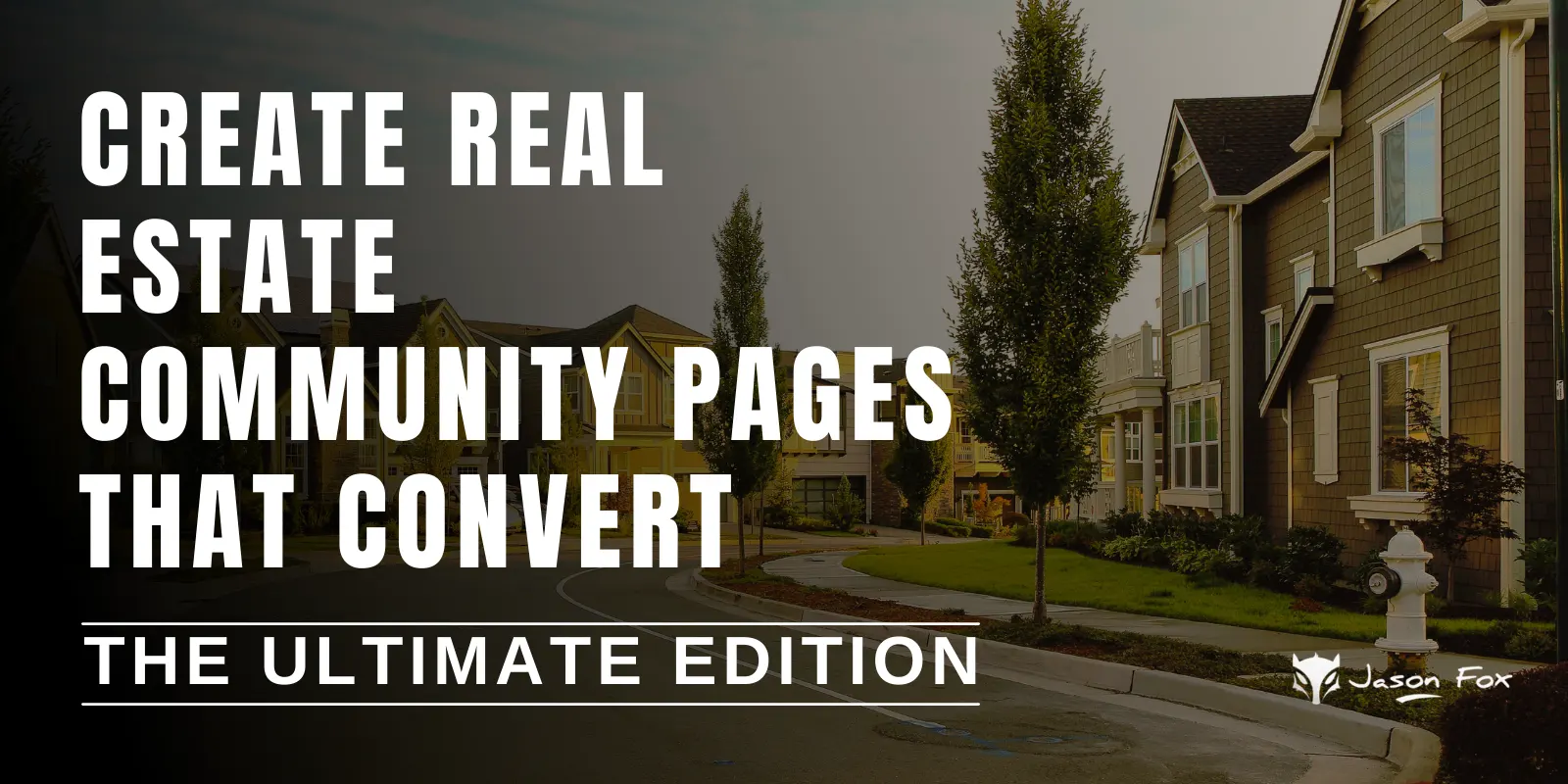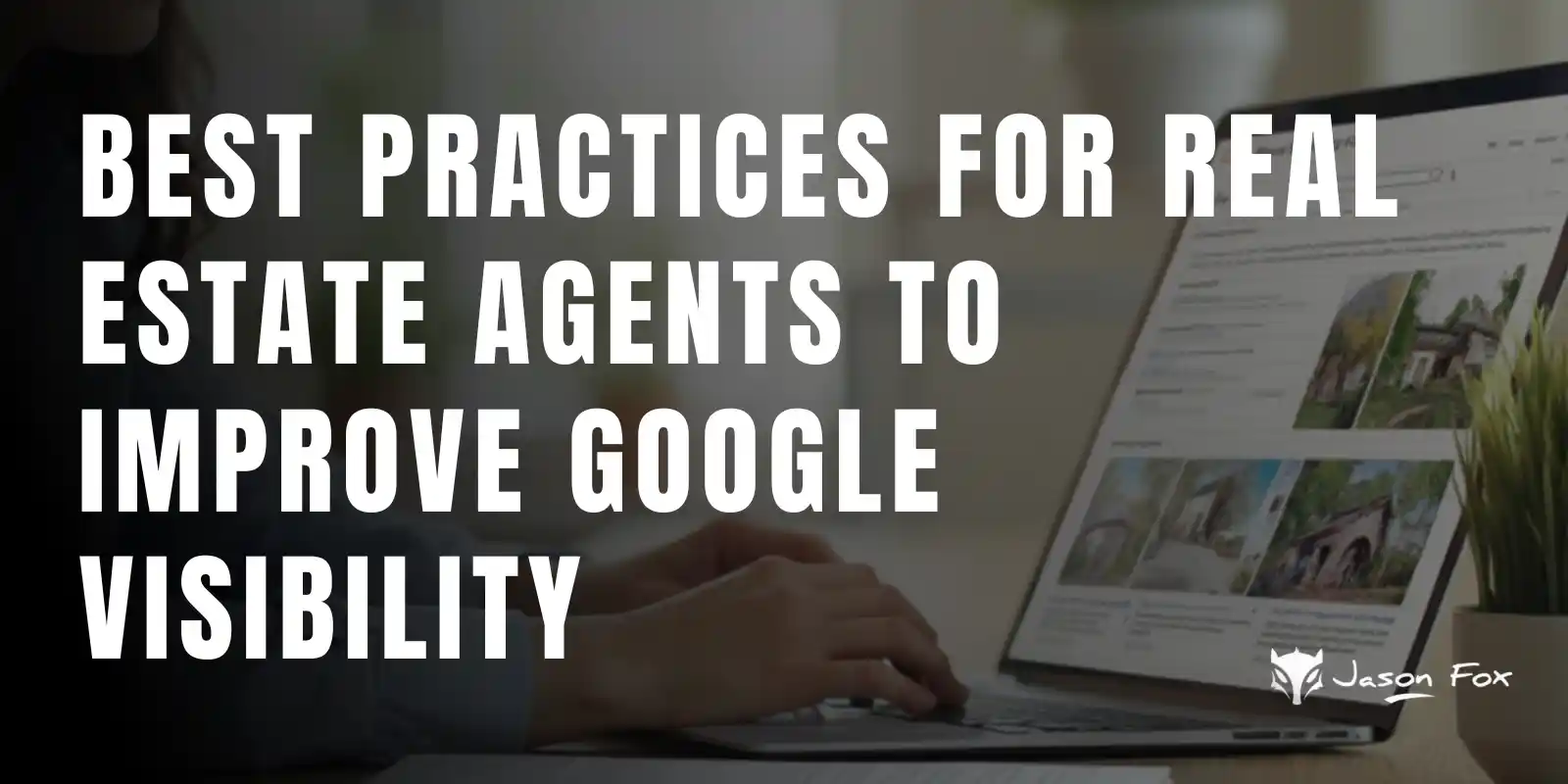Standing Out From the Competition in the Online Market
The internet is home to millions of websites where agents update listings and meet new clients, so how can you stand out from the competition?
It all depends on your strategies to tackle the online market, so use these ideas to reach potential clients more efficiently. You’ll refresh your brand, foster better client relationships and find more tremendous success with slight changes that set you apart from competitors.
1. Learn the Basics of SEO
Search engine optimization (SEO) is a collection of strategies that draw visitors to a website by improving its search engine ranking. When someone Googles a keyword phrase like “real estate agents near me,” your website could appear on the first page of results if it has specific details the search engine looks for regarding trustworthiness, accuracy and reliability.
Google measures these factors with its EEAT standards, which stands for Experience, Expertise, Authoritativeness and Trustworthiness. If someone sees your website on the first page of Google results, it means your experience as a real estate agent is more authoritative than someone in a different industry posting general real estate blog updates.
Browse SEO guides online or take a virtual certification course to practice the specifics. You could also hire an expert to evaluate your website and provide detailed recommendations for faster, more accurate results. They might recommend:
- Using more real-estate-related keywords on your website pages
- Linking to reputable industry sources within your blog posts
- Adding meta descriptions to your posts and pages
- Updating your crawler speed and results
- Ensuring search engines can index every page on your site
You could also use SEO tools to improve your website text and blog updates. Ahrefs ($99/month) and SEM Rush ($130/month) are industry leaders in SEO improvement, but they can also be costly for some small businesses. Check out other tools like these to learn more about search engine optimization:
- Keysearch ($17/month)
- Nightwatch ($24/month)
- Mangools ($32/month)
- SE Ranking ($44/month)
- Majestic SEO ($44/month)
- Ubersuggest ($49/month)
- Serpstat ($59/month)
People rarely want to look past their preferred search engine’s first or second page — they need quick, reliable results. SEO strategies ensure they don’t have to look far for your real estate services.
Although people don’t always understand how search engine optimization works, they might feel wary of second- or third-page results anyway. They could wonder if the site appears lower because fewer people trust it with their time. Learning SEO tips might take some time, but the investment will be worth it because potential clients will find your site with less hassle.
2. Anticipate Future Trends
Sites like the National Association of Realtors (NAR) regularly release data so agents can study trends. Current patterns reveal what consumers want in their future homes or purchasing experience. If you know what they want, you can spot what they don’t have yet and anticipate that future need.
The latest NAR data shows single-family homeowners paid roughly 27.4% of their income toward their monthly mortgage in October 2023. If your listings primarily advertise the location and the property’s architecture, you’ll leave potential clients without the information they’re likely looking for. They might want to purchase a home that costs less than 27.4% of their income, making the estimated monthly mortgage price on each list more important in their decision to contact a realtor.
Data like this also indicates future trends. The same NAR data shows mortgage rates rose steadily between October 2022 and 2023, so prospective buyers will continue being concerned about listing prices and estimated mortgage payments rather than the superficial listing details that make home buying more fun.
You could stand out from the competition by pushing financial details slightly more in updates for a few additional months. Stay up to date on trends to ensure you know what people will need and what your competitors already have on their websites.
3. Poll Your Clients
Clients are excellent sources of information, so send a poll to them through an email newsletter after they purchase their homes. You could ask about their experience with your real estate services to find out what they enjoyed and needed more of before their closing date.
Virtual tools are ready to make email polls an effortless extension of your real estate services. Consider options like these to find the best polling platforms and get the feedback you need:
- Google Forms (Free)
- SurveySparrow ($19/month)
- MailChimp ($20/month)
- SurveyMonkey ($25/month)
- Jotform ($34/month)
Social media also presents polling opportunities. Many platforms have built-in tools where you type your question and generate results for your followers to click. If your feedback opportunities have a limited time — like 24 hours — you’ll apply some pressure to get more responses.
You’ll better understand your audience’s needs and gauge the general direction of consumer desires. Their feedback will reveal new expectations people will have from their real estate agents so you can adjust your marketing and website accordingly.
4. Optimize Your Conversion Rate
Conversion rate optimization (CRO) means increasing how many of your website’s visitors take action on your services with or without speaking to you first. It may involve reaching out to arrange a consultation call or clicking through listings.
These are called calls to action and should be clear on new posts. Invite site visitors to click on additional links to learn more or access a virtual form to arrange a consultation. It depends on what you want website visitors to do based on your services and site design.
The design also eliminates distractions. Ask yourself what site visitors should do when they arrive at your website, like browse new listings. What keeps them from doing that? Slow page loading times, pop-up ads or difficulty finding your listings page are just a few things that could hold them back. Look through your site as if you were a potential client to note what prevents you from utilizing your website’s primary purposes.
Understanding what prevents a higher conversion rate means your visitors will get more use out of your site. You’ll make it more useful, easier to understand and eye-catching by fixing key details like:
- Slow-loading pages
- Deactivated cookies
- Presenting the most popular services on the homepage
- Creating an email newsletter pop-up
- Making your contact page easy to locate
You could also think of your site as a newspaper. When you glance at a folded newspaper, you’ll see stories above the fold line. Newspaper teams put the most pressing information in that space so people walking by or skimming get the most important details right away.
Your homepage has an above-the-fold line as well, which is whatever visitors can see before they begin scrolling. Use this space effectively by adding buttons to essential services or links to site pages, like your listings. You’ll increase your conversion rate because people don’t have to waste time searching for the information they need.
Always ensure you test your site after making updates — it should run smoothly and quickly, or visitors may not have the patience to browse your listings. You could ask a friend to check your site after updates go live or use a secondary computer to investigate new pages or links yourself.
5. Create a Brand Management Plan
Companies and entrepreneurs create brand management plans to determine the essentials of their businesses, how they’ll develop them and what routine standards they need to meet in daily operations. Real estate agents can do the same to stand out from the competition in the online market.
Reflect on your site’s current data. You should gather information to create a baseline for where your brand currently stands, like:
- How many people visit your site daily, weekly and monthly
- Where they come from — search engines or social media sites, for example
- How long they stay on your site
- Which pages of your site get the most traffic
How would you like your site to grow? Your SEO and CRO strategies will help that happen, but you can use the data above to ensure you’re making progress toward a specific number of website visitors monthly or your preferred targets.
Your brand should also clarify your mission statement, as people rely on them to know what matters most to a company. Study your competitors to see what their mission statements say and what additional aspects yours could include to show what sets you apart.
6. Follow Industry Leaders
Establishing yourself as a trustworthy leader means learning from and respecting those at the head of your sector. Follow the people making waves in real estate to see what they’re recommending or advising against. They could predict trends, talk about what currently frustrates clients or mention economic concerns.
When you learn from real estate leaders, you can update your website and social media pages with the latest information your clients need. Becoming an essential translator for current and potential buyers builds the kind of trust you’ll need to outshine competitors.
7. Browse Related Hashtags
You might already spend time on social media daily, so use that to your brand’s advantage. See what people say about housing prices and interior design trends to get in touch with what homeowners want in real time.
Search tools can assist with this social media SEO effort as well. They’ll reveal hashtags related to your industry, how often people post or search them, and long-term usage trends. Try a few free or affordable options to see which are easiest for you to use:
- Google: Choose a social media site and enter “site:[social media site] #[your desired hashtag] to find what people are posting
- Social media: Use apps to find trending hashtags or see which hashtags your competitors use in their posts to reach a wider audience
- All Hashtag: Free
- Ritetag: $49/year
- Hootsuite: $149/month
Use what you see to formulate blog and social media posts curated to their interests. Instead of posting about random topics and hoping for engagement, your followers or site visitors will look forward to your updates because you know what catches their eye.
For example, you might find people talking about beadboard cabinet door trends, which use slats within a recessed panel to create more visual depth in a kitchen or bathroom. Personable content supporting this interest and expanding on how it beautifies a home would appeal to your audience more than something from a topic generator. They’ll know you’re invested in what they want, which may be more than your competitors show through their posts.
8. Engage With People Online
It’s not enough to just write about what people want to learn — real estate agents also need to make personal connections. Even the most successful brands will eventually fail if people have no trust or relationship with them.
After posting on your website or social media, respond to comments to create digital engagement. Ask people for feedback via limited-time polls or host live video sessions to answer questions or address a specific topic.
You could use these opportunities to link to other helpful resources so your audience benefits by learning alongside you. If they read your recommendations on aspects like debating property prices to get the best deals, they may feel more inclined to reach out regarding their upcoming relocation.
Remember — brand-to-consumer trust comes from reliability and reachability. People will feel distanced from you if you rarely post or engage with your followers. They might think you’re not as involved in the industry as other real estate agents making this effort. It’s crucial to carve time into your schedule to be reachable online if you want to achieve greater success.
Stand Out From the Competition
Becoming a notable name or brand in a saturated industry is tough but not impossible. Start standing out from the crowd in the online market by using these ideas to boost your brand. You’ll connect with prospective buyers, improve their experience and generate more website traffic with strategies like these.
post contents
The internet is home to millions of websites where agents update listings and meet new clients, so how can you stand out from the competition?
It all depends on your strategies to tackle the online market, so use these ideas to reach potential clients more efficiently. You’ll refresh your brand, foster better client relationships and find more tremendous success with slight changes that set you apart from competitors.
1. Learn the Basics of SEO
Search engine optimization (SEO) is a collection of strategies that draw visitors to a website by improving its search engine ranking. When someone Googles a keyword phrase like “real estate agents near me,” your website could appear on the first page of results if it has specific details the search engine looks for regarding trustworthiness, accuracy and reliability.
Google measures these factors with its EEAT standards, which stands for Experience, Expertise, Authoritativeness and Trustworthiness. If someone sees your website on the first page of Google results, it means your experience as a real estate agent is more authoritative than someone in a different industry posting general real estate blog updates.
Browse SEO guides online or take a virtual certification course to practice the specifics. You could also hire an expert to evaluate your website and provide detailed recommendations for faster, more accurate results. They might recommend:
- Using more real-estate-related keywords on your website pages
- Linking to reputable industry sources within your blog posts
- Adding meta descriptions to your posts and pages
- Updating your crawler speed and results
- Ensuring search engines can index every page on your site
You could also use SEO tools to improve your website text and blog updates. Ahrefs ($99/month) and SEM Rush ($130/month) are industry leaders in SEO improvement, but they can also be costly for some small businesses. Check out other tools like these to learn more about search engine optimization:
- Keysearch ($17/month)
- Nightwatch ($24/month)
- Mangools ($32/month)
- SE Ranking ($44/month)
- Majestic SEO ($44/month)
- Ubersuggest ($49/month)
- Serpstat ($59/month)
People rarely want to look past their preferred search engine’s first or second page — they need quick, reliable results. SEO strategies ensure they don’t have to look far for your real estate services.
Although people don’t always understand how search engine optimization works, they might feel wary of second- or third-page results anyway. They could wonder if the site appears lower because fewer people trust it with their time. Learning SEO tips might take some time, but the investment will be worth it because potential clients will find your site with less hassle.
2. Anticipate Future Trends
Sites like the National Association of Realtors (NAR) regularly release data so agents can study trends. Current patterns reveal what consumers want in their future homes or purchasing experience. If you know what they want, you can spot what they don’t have yet and anticipate that future need.
The latest NAR data shows single-family homeowners paid roughly 27.4% of their income toward their monthly mortgage in October 2023. If your listings primarily advertise the location and the property’s architecture, you’ll leave potential clients without the information they’re likely looking for. They might want to purchase a home that costs less than 27.4% of their income, making the estimated monthly mortgage price on each list more important in their decision to contact a realtor.
Data like this also indicates future trends. The same NAR data shows mortgage rates rose steadily between October 2022 and 2023, so prospective buyers will continue being concerned about listing prices and estimated mortgage payments rather than the superficial listing details that make home buying more fun.
You could stand out from the competition by pushing financial details slightly more in updates for a few additional months. Stay up to date on trends to ensure you know what people will need and what your competitors already have on their websites.
3. Poll Your Clients
Clients are excellent sources of information, so send a poll to them through an email newsletter after they purchase their homes. You could ask about their experience with your real estate services to find out what they enjoyed and needed more of before their closing date.
Virtual tools are ready to make email polls an effortless extension of your real estate services. Consider options like these to find the best polling platforms and get the feedback you need:
- Google Forms (Free)
- SurveySparrow ($19/month)
- MailChimp ($20/month)
- SurveyMonkey ($25/month)
- Jotform ($34/month)
Social media also presents polling opportunities. Many platforms have built-in tools where you type your question and generate results for your followers to click. If your feedback opportunities have a limited time — like 24 hours — you’ll apply some pressure to get more responses.
You’ll better understand your audience’s needs and gauge the general direction of consumer desires. Their feedback will reveal new expectations people will have from their real estate agents so you can adjust your marketing and website accordingly.
4. Optimize Your Conversion Rate
Conversion rate optimization (CRO) means increasing how many of your website’s visitors take action on your services with or without speaking to you first. It may involve reaching out to arrange a consultation call or clicking through listings.
These are called calls to action and should be clear on new posts. Invite site visitors to click on additional links to learn more or access a virtual form to arrange a consultation. It depends on what you want website visitors to do based on your services and site design.
The design also eliminates distractions. Ask yourself what site visitors should do when they arrive at your website, like browse new listings. What keeps them from doing that? Slow page loading times, pop-up ads or difficulty finding your listings page are just a few things that could hold them back. Look through your site as if you were a potential client to note what prevents you from utilizing your website’s primary purposes.
Understanding what prevents a higher conversion rate means your visitors will get more use out of your site. You’ll make it more useful, easier to understand and eye-catching by fixing key details like:
- Slow-loading pages
- Deactivated cookies
- Presenting the most popular services on the homepage
- Creating an email newsletter pop-up
- Making your contact page easy to locate
You could also think of your site as a newspaper. When you glance at a folded newspaper, you’ll see stories above the fold line. Newspaper teams put the most pressing information in that space so people walking by or skimming get the most important details right away.
Your homepage has an above-the-fold line as well, which is whatever visitors can see before they begin scrolling. Use this space effectively by adding buttons to essential services or links to site pages, like your listings. You’ll increase your conversion rate because people don’t have to waste time searching for the information they need.
Always ensure you test your site after making updates — it should run smoothly and quickly, or visitors may not have the patience to browse your listings. You could ask a friend to check your site after updates go live or use a secondary computer to investigate new pages or links yourself.
5. Create a Brand Management Plan
Companies and entrepreneurs create brand management plans to determine the essentials of their businesses, how they’ll develop them and what routine standards they need to meet in daily operations. Real estate agents can do the same to stand out from the competition in the online market.
Reflect on your site’s current data. You should gather information to create a baseline for where your brand currently stands, like:
- How many people visit your site daily, weekly and monthly
- Where they come from — search engines or social media sites, for example
- How long they stay on your site
- Which pages of your site get the most traffic
How would you like your site to grow? Your SEO and CRO strategies will help that happen, but you can use the data above to ensure you’re making progress toward a specific number of website visitors monthly or your preferred targets.
Your brand should also clarify your mission statement, as people rely on them to know what matters most to a company. Study your competitors to see what their mission statements say and what additional aspects yours could include to show what sets you apart.
6. Follow Industry Leaders
Establishing yourself as a trustworthy leader means learning from and respecting those at the head of your sector. Follow the people making waves in real estate to see what they’re recommending or advising against. They could predict trends, talk about what currently frustrates clients or mention economic concerns.
When you learn from real estate leaders, you can update your website and social media pages with the latest information your clients need. Becoming an essential translator for current and potential buyers builds the kind of trust you’ll need to outshine competitors.
7. Browse Related Hashtags
You might already spend time on social media daily, so use that to your brand’s advantage. See what people say about housing prices and interior design trends to get in touch with what homeowners want in real time.
Search tools can assist with this social media SEO effort as well. They’ll reveal hashtags related to your industry, how often people post or search them, and long-term usage trends. Try a few free or affordable options to see which are easiest for you to use:
- Google: Choose a social media site and enter “site:[social media site] #[your desired hashtag] to find what people are posting
- Social media: Use apps to find trending hashtags or see which hashtags your competitors use in their posts to reach a wider audience
- All Hashtag: Free
- Ritetag: $49/year
- Hootsuite: $149/month
Use what you see to formulate blog and social media posts curated to their interests. Instead of posting about random topics and hoping for engagement, your followers or site visitors will look forward to your updates because you know what catches their eye.
For example, you might find people talking about beadboard cabinet door trends, which use slats within a recessed panel to create more visual depth in a kitchen or bathroom. Personable content supporting this interest and expanding on how it beautifies a home would appeal to your audience more than something from a topic generator. They’ll know you’re invested in what they want, which may be more than your competitors show through their posts.
8. Engage With People Online
It’s not enough to just write about what people want to learn — real estate agents also need to make personal connections. Even the most successful brands will eventually fail if people have no trust or relationship with them.
After posting on your website or social media, respond to comments to create digital engagement. Ask people for feedback via limited-time polls or host live video sessions to answer questions or address a specific topic.
You could use these opportunities to link to other helpful resources so your audience benefits by learning alongside you. If they read your recommendations on aspects like debating property prices to get the best deals, they may feel more inclined to reach out regarding their upcoming relocation.
Remember — brand-to-consumer trust comes from reliability and reachability. People will feel distanced from you if you rarely post or engage with your followers. They might think you’re not as involved in the industry as other real estate agents making this effort. It’s crucial to carve time into your schedule to be reachable online if you want to achieve greater success.
Stand Out From the Competition
Becoming a notable name or brand in a saturated industry is tough but not impossible. Start standing out from the crowd in the online market by using these ideas to boost your brand. You’ll connect with prospective buyers, improve their experience and generate more website traffic with strategies like these.
Latest articles
Short real estate videos can be transformed into powerful blog content with the right strategy. Learn how to expand on video topics, incorporate SEO best practices, and create engaging posts that drive traffic and boost your search rankings.
Learn how to create real estate community pages that attract buyers, boost your local SEO, and establish you as a market expert. This ultimate guide covers content creation tips, the use of AI tools, and IDX integration to help your pages stand out in 2024.
To stay competitive in real estate, agents must prioritize SEO to improve their Google visibility. By implementing proven strategies like asking for reviews, creating relevant content, and focusing on local SEO, you can attract more clients and increase your online presence.
BECOME A MEMBER
Become A Free DIY Real Estate Marketing Member & Get Access To:
LARGEST COLLECTION OF
Real Estate Marketing e-Books, Guides, Templates, & whitepapers
ON THE INTERNET
+ OVER 70 How To Website Training Videos including; WordPress, Agent Evolution Themes, & IDX Broker
+ DIY Real Estate Marketing Tips and Strategies Delivered to Your Inbox
Share this article
Written by : Evelyn Long
Evelyn Long is a writer with over 5 years of experience in the real estate business. She is the co-founder of the home living magazine Renovated, where she writes about market trends.










